
Henry Byron Warner was an English film and theatre actor. He was popular during the silent era and played Jesus Christ in The King of Kings. In later years, he successfully moved into supporting roles and appeared in numerous films directed by Frank Capra. Warner's most recognizable role to modern audiences is Mr. Gower in It's a Wonderful Life, directed by Capra. He appeared in the original 1937 version of Lost Horizon as Chang, for which he was nominated for the Academy Award for Best Supporting Actor.
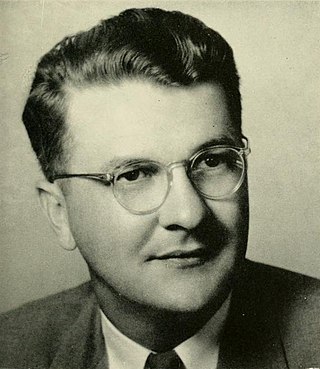
William Casey Marland, a Democrat, was the 24th Governor of West Virginia from 1953 to 1957. He is best known for his early attempts to tax companies that depleted the state's natural resources, especially coal, as well as overseeing implementation of school desegregation during the Civil Rights Movement when other Southern governors opposed it. Near the end of his life, he re-entered the public stage when a reporter found him driving a cab in Chicago. He responded to the negative publicity by making a public statement to the media about his recovery from alcoholism and indicated that his new, relatively humble job helped in that recovery.

John Beach Litel was an American film and television actor.
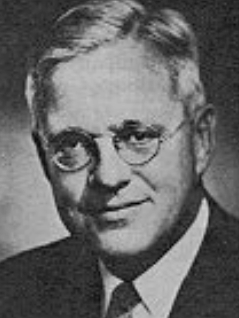
Thomas Hopkinson Eliot was an American lawyer, politician, and academic who served as chancellor of Washington University in St. Louis and as a congressman in the United States House of Representatives from Massachusetts.

William Phillips was a career United States diplomat who served twice as an Under Secretary of State. He was also the United States Ambassador to Canada.
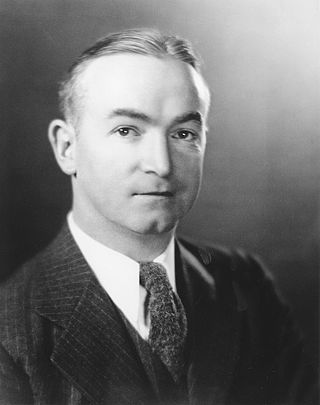
Homer Adams Holt was a West Virginia lawyer and politician who served as that state's 20th governor from 1937 to 1941. Born in Lewisburg, West Virginia, he attended the Greenbrier Military School there and then went on to graduate from Washington and Lee University in 1918, where he was a member of the Phi Kappa Psi fraternity. After serving in the army during World War I, he returned to Washington and Lee in 1920 and studied law, receiving his degree in 1923. In 1924, he married Isabel Wood.
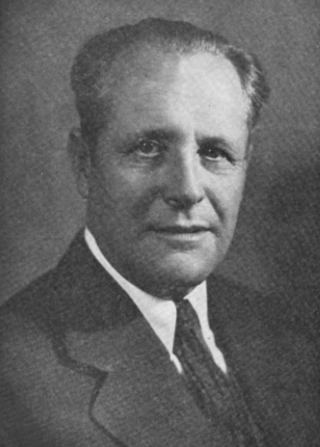
Joseph Rhodes Hanley was an American lawyer, preacher, and politician who served as lieutenant governor of New York from 1943 to 1950.

The Randolph family of Virginia is a prominent political family, whose members contributed to the politics of Colonial Virginia and Virginia after statehood. They are descended from the Randolphs of Morton Morrell, Warwickshire, England. The first Randolph in America was Edward Fitz Randolph, who settled in Massachusetts in 1630. His nephew, William Randolph, later came to Virginia as an orphan in 1669. He made his home at Turkey Island along the James River. Because of their numerous progeny, William Randolph and his wife, Mary Isham Randolph, have been referred to as "the Adam and Eve of Virginia". The Randolph family was the wealthiest and most powerful family in 18th-century Virginia.

The attorney general of Arkansas, usually known simply as the attorney general (AG), is one of Arkansas's seven constitutional officers. The officeholder serves as the state's top law enforcement officer and consumer advocate.

General Wade Hampton Haislip was a senior United States Army officer who served in both World War I and World War II, where he led XV Corps on the Western Front from 1944 to 1945. He later became a four-star general, serving as Vice Chief of Staff of the United States Army (VCSA) from 1949 to 1951.

George Robert Bagley was an American attorney and jurist in the state of Oregon. A native of Ohio, he was raised in Washington County, Oregon, where he practiced law and served as a circuit court judge for nearly 25 years. Bagley Park in Hillsboro is named in his honor.
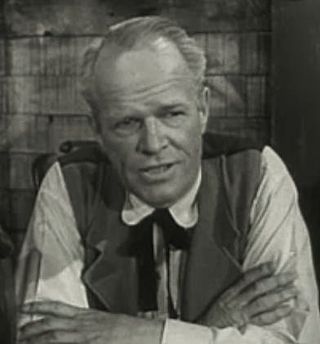
Louis Jean Heydt was an American character actor in film, television and theatre, most frequently seen in hapless, ineffectual, or fall guy roles.












